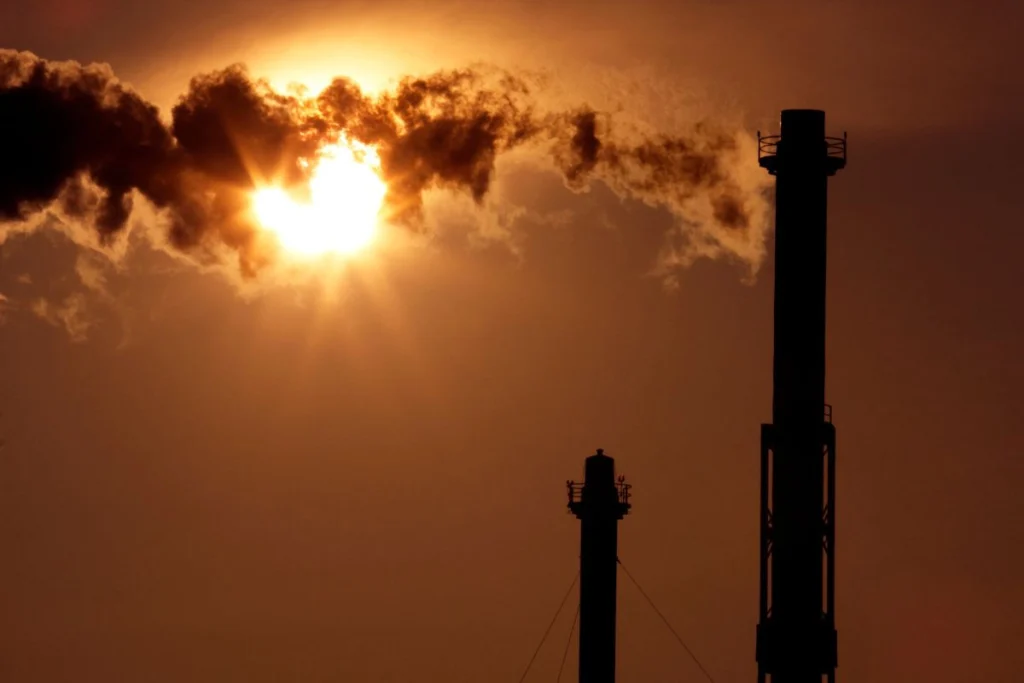Minnesota needs to reject attempts to undermine this critical legislation as climate crisis worsens

Environmental groups are urging Minnesota’s Public Utilities Commission (PUC) to reject industry-backed efforts to upend Minnesota’s 100% Carbon Free Energy Law and hold the line against false climate solutions as the agency prepares to decide which energy technologies will qualify under the landmark legislation.
Minnesota Center for Environmental Advocacy, Sierra Club, Minnesota Environmental Justice Table, CURE, and other groups, as well as hundreds of Minnesotans, wrote in comments to be filed with the PUC this week that the language of the statute, not special interests, should control what technologies qualify as carbon free.
The law, passed in 2023, requires utilities to provide enough carbon-free electricity to meet 100% of their Minnesota sales by 2040, and defines “carbon-free” technologies as those that generate electricity “without emitting carbon dioxide.”
Despite the law’s unambiguous language, representatives from the forest products industry and electric utilities argue in their comments that the PUC should consider the burning of trees and woody biomass to be “carbon-free.” The Minnesota Pollution Control Agency (MPCA) and the Department of Commerce go even further, advocating in their comments that trash incineration should also be included.
As the environmental groups stress in their comments, burning biomass and trash undeniably emit carbon dioxide, and the PUC would have to ignore the plain language of the law to deem them carbon-free. In fact, per megawatt-hour of electricity produced, both these technologies emit more carbon dioxide than burning coal. Given the urgency of the climate crisis, the last thing we need is to replace fossil fuels with fuels that have even higher carbon emissions.
The PUC’s decision regarding biomass and trash incineration will also have major environmental justice implications. Trash burning emits dangerous air pollutants linked to early deaths from heart and lung disease, and six of the seven municipal trash incinerators in Minnesota are located in or near environmental justice communities whose populations bear a disproportionate burden from health-harming air pollution.
“It is astonishing that so many groups are asking the PUC to ignore what the carbon-free definition clearly says, favoring an absurd reading of the law that pretends carbon-emitting technologies don’t emit carbon,” said MCEA attorney Barbara Freese. “Failing to apply the definition of carbon-free as written threatens the law’s ability to achieve its intended purpose.”
“The many Minnesotans who came out to support the 100% Law did so on the promise Minnesota would stop polluting our air, climate, communities, and workplaces with dirty sources of electricity. Obviously, the fossil fuel industry and others who profit off these energy sources don’t want that to happen, but just because they say they can burn coal or wood or garbage and make it ‘clean’ doesn’t make it true. The PUC should see these false claims for what they are,” said Maggie Schuppert, Campaigns Director at CURE.
“The climate emergency demands of us that we immediately reduce waste and shut down trash burners. Instead, MN government agencies allow garbage burners to qualify for renewable energy credits that fund these burners’ expensive operations and repairs. And now regulators are trying to corrupt the new 100% law to allow trash burners to also count as ‘carbon-free’ energy, giving them access to additional money,” said Nazir Khan, Executive Director at MN EJ Table. “Still worse, under the influence of corporate lobbying, regulators appear to have learned nothing from Europe’s massive biomass scam, in which old-growth forests are shredded and manufactured into wood pellets that are burned for energy, generating more carbon than coal would have and destroying precious forest carbon sinks. This biomass-fueled energy makes up almost 60% of the EU’s so-called renewable energy.”
“The PUC has a responsibility to implement the law as it is written, not to create a new definition for carbon-free. The law we passed in 2023 made it clear that carbon-free means that it does not emit carbon. Anyone who claims that carbon-free is anything other than that is promoting a false solution,” said Andrea Lovoll, Government Relations Director at MN EJ Table
“The Public Utilities Commission’s responsibility is to uphold the law independently, without political interference. The law is unequivocal: carbon-free electricity means electricity that does not emit carbon. Unfortunately, the MPCA and Department of Commerce are aligning with polluting industries, and urging the PUC to disregard this clear mandate,” said Peter Wagenius, Legislative Director at the Sierra Club North Star Chapter. “We call on the PUC to maintain its independence from state agencies that have been captured by polluters and to strictly adhere to the law.”
The PUC will review the public comments before issuing its decision later this summer.
###
100% Carbon Free Energy Coalition press release / Drafted by Minnesota Center for Environmental Advocacy


